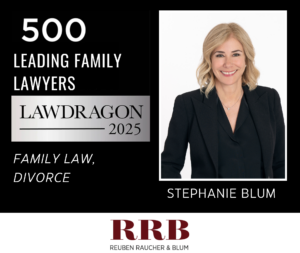
When parents get divorced, among the issues that must be addressed is how the children’s holiday and vacation time shall be shared by the parents. Not only are there summer break and three day holiday weekends to think about, but parents also need to figure out what makes sense for the Winter holidays.
There are many ways to divide the time. But it is complicated by the fact that parents thinking about divorcing cannot possibly see the future clearly. Does it make sense to simply split the school vacation equally down the middle with a transition from one parent to the other at the mid point? Does it make more sense to divvy up the vacation allotting one parent the Christmas holiday and the other parent the New Years holiday? Does Christmas eve need to be one with parent and Christmas day with the other? And what about Hanukkah? Since there are 8 nights of Hanukkah, do we divide them equally between the parents? And how does travel factor into the holiday division?
Post divorce, are you going to want to take the children on a trip over their winter break, perhaps to ski? Often at that time of year, hotels require minimum night stays. If a parent has to be back in town to transition the children to the other parent for Christmas day, for example, how can one plan a trip?
In some instances, custody agreements provide that parents alternate based on odd and even years, so that if, for example, mom has the children for the first half of the winter break in an even year, then dad would have them for the first half of the break in odd years. Or if dad has the children for Christmas Eve in 2023, then mom will have them for Christmas Eve in 2024.
But alternating, for example, who has Christmas Eve each year does not allow parents to create family traditions that can be celebrated together consistently each year. Perhaps it makes more sense to agree that mom will always have the children for Christmas eve and dad will always have the children for Christmas day. These are important issues which must be resolved for everyone’s comfort and happiness.
There is no one way to approach scheduling vacation time, nor is there only one option. It is really up to parents to try to figure out and agree what best meets their and their children’s needs.
Of course, the issue is further complicated by the children’s ages. What works for a 2-year-old is likely vastly different than what works for a child aged 7 or 15. It may be that a 2-year-old is better served not being away from either parent for as long as 7 or 10 days, whereas one would not have the same concerns about an older child.
And how should it be handled when a teenager is invited to vacation with a friend’s family, but it falls during only one parent’s custodial time? Is that teenager allowed to go and does one parent lose their time? Do parents modify their schedule to accommodate the inevitable but unpredictable opportunities the child will have or do parents prioritize their preferences? So how should the parenting plan evolve over time? It certainly must do so.
When divorced couples are on amicable terms, they can usually work through these issues relatively simply, and if necessary, changes can be made to their prior agreements. Of course, it is easier for all concerned if the two parents can have a respectful and productive dialogue and reach compromises that meet everyone’s needs. However, that is often not the case. When the couples are higher conflict, they could sit down with a family law mediator or therapist who specializes in assisting divorced parents with their co-parenting issues and work towards a resolution. As a last resort, parents can retain counsel to litigate these issues. But, if it is necessary for a court to get involved, one must plan well ahead because counsel cannot file a request with the court on December 5th and expect a ruling before Christmas.
It is a good practice for parents to sort out the holiday and vacation schedules long before they occur to avoid the drama and expense that could otherwise likely ensue.
(This article appeared in the December 2023 issue of Living Brentwood)









